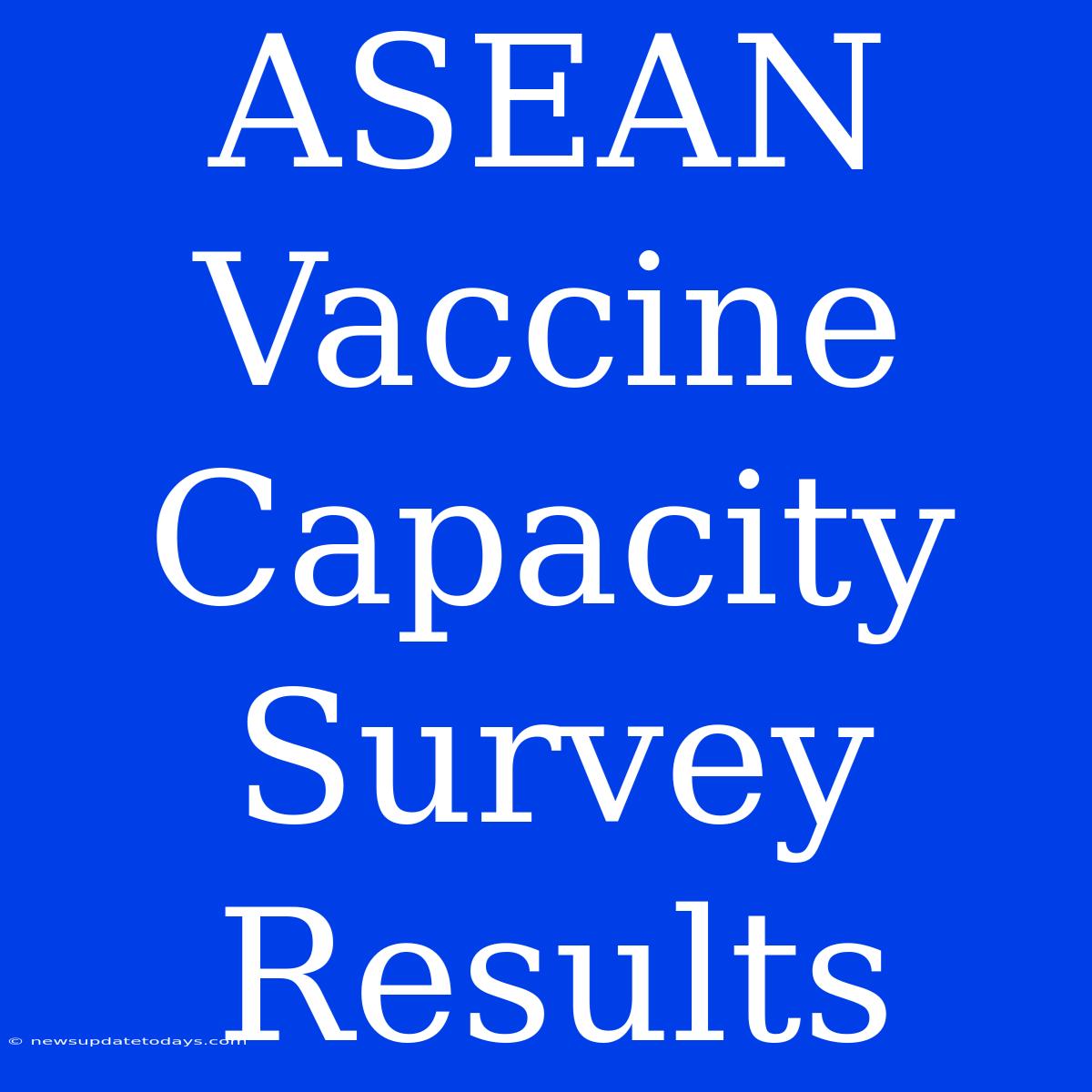ASEAN Vaccine Capacity Survey Results: A Regional Overview
The ASEAN Vaccine Capacity Survey has yielded crucial insights into the region's preparedness for future health crises. This survey, a collaborative effort between numerous stakeholders, provides a comprehensive assessment of the current state of vaccine manufacturing, distribution, and regulatory frameworks across Southeast Asia. Understanding these results is vital for strengthening regional resilience and ensuring equitable access to life-saving vaccines.
Key Findings of the ASEAN Vaccine Capacity Survey
The survey revealed both strengths and weaknesses in ASEAN's vaccine ecosystem. Key findings include:
1. Manufacturing Capacity: The survey highlighted a significant gap in domestic vaccine manufacturing capacity across many ASEAN member states. While some countries possess established facilities, many rely heavily on imports, making them vulnerable to global supply chain disruptions, as witnessed during the COVID-19 pandemic. This dependency underscores the urgent need for investment in building regional manufacturing capabilities.
2. Regulatory Frameworks: The survey assessed the robustness of regulatory frameworks governing vaccine development, approval, and distribution. Inconsistencies across member states were noted, suggesting a need for harmonization of regulatory processes to streamline vaccine approvals and facilitate cross-border movement of vaccines. Strengthening regulatory cooperation is crucial to ensure vaccine safety and efficacy throughout the region.
3. Cold Chain Infrastructure: Maintaining the efficacy of vaccines often requires a robust cold chain system for storage and transportation. The survey evaluated the existing cold chain infrastructure across ASEAN and identified areas needing improvement, particularly in remote and underserved communities. Investing in and upgrading cold chain infrastructure is critical for ensuring vaccines reach those who need them most.
4. Workforce Development: The successful implementation of any vaccine program hinges on a well-trained workforce. The survey examined the availability of trained personnel in vaccine manufacturing, distribution, and administration, emphasizing the need for targeted training programs to upskill existing personnel and develop future generations of vaccine professionals. Investing in human capital is a cornerstone of a resilient vaccine ecosystem.
5. Research and Development: The survey also touched upon the state of vaccine research and development within ASEAN. While some progress has been made, the survey suggests a need for increased investment in research and development to foster innovation and build greater self-reliance in vaccine production. This includes supporting initiatives focused on developing vaccines tailored to regional diseases.
Implications and Recommendations
The ASEAN Vaccine Capacity Survey results have significant implications for future pandemic preparedness and response. Key recommendations emerging from the survey include:
- Increased investment in domestic vaccine manufacturing: Diversifying vaccine supply chains and reducing reliance on imports is paramount.
- Harmonization of regulatory frameworks: Streamlining regulatory processes will enhance efficiency and facilitate cross-border collaboration.
- Strengthening cold chain infrastructure: Ensuring that vaccines reach all populations, regardless of location, is essential.
- Investing in workforce development: A skilled workforce is vital for a successful vaccine program.
- Boosting research and development: Supporting innovation and building regional expertise in vaccine development is crucial.
By addressing these key areas, ASEAN can significantly enhance its resilience to future health crises and ensure equitable access to vaccines for all its citizens. The survey's findings serve as a roadmap for collaborative action and highlight the need for sustained investment in building a robust and resilient regional vaccine ecosystem. The future of public health in ASEAN depends on implementing these recommendations effectively.

